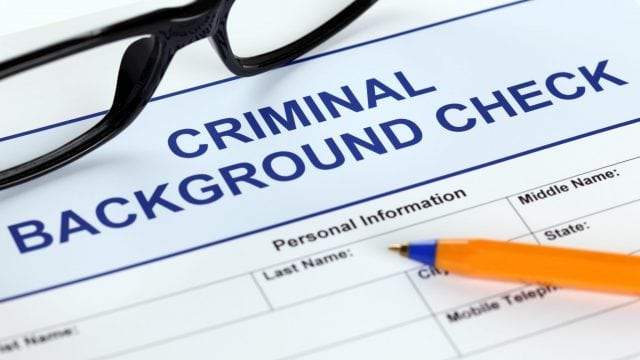N.J.S.A. 2C:44-1.1: Vacatur and Expungement for Victims of Sex Trafficking in New Jersey

Sex trafficking victims are not criminals. As such, they should be supported, not criminalized. Yet for the past decade, sex trafficking victims have been enmeshed in our criminal legal system for offenses they committed due to their status as sex trafficking victims. This is neither dignity nor justice.
In recognition of this, in 2013, New Jersey became one of the first states to enact legislation allowing victims of sex trafficking to vacate and expunge criminal convictions that resulted from sex trafficking. The law at the time, however, only provided for the vacatur and expungement of prostitution charges and other sex-related offenses. No other offenses were eligible for expungement under that law.
However, the justice system has since realized that prostitution and prostitution-related offenses are not the only types of criminal offenses that victims of sex trafficking are likely to have on their criminal records. Victims of sex trafficking, for example, could likely be arrested on charges such as drug possession, selling drugs, theft, shoplifting, burglary, etc.; all stemming from the fact that they were a victim of sex trafficking.
As we all know, there are numerous consequences of bearing a criminal record, such as difficulty finding employment, access to housing, or immigration status. Failure to provide relief for sex trafficking victims whose records hold other convictions besides prostitution prevented many sex trafficking victims from being able to truly move forward with their lives with a “clean slate.”
In keeping with New Jersey’s commitment to assist victims of human trafficking, in January of 2022 – which was National Human Trafficking and Awareness Month – Governor Murphy signed Bill No. 5233 into law, which expanded access to vacatur and expungement for sex trafficking victims.
Specifically, the new law, which went into effect on May 1, 2022, expands the types of criminal charges that an individual may apply to have vacated and expunged. Under the new law, victims of human trafficking can now make a motion to vacate and expunge any criminal charges if they can show that, at the time of the offense, it was a result of their trafficked status.
What Does the Law Provide?
Pursuant to the new law, codified at N.J.S.A. 2C:44-1.1, “all arrests, charges, and convictions” for violations of law committed by the person “as a result of the person’s status as a victim of human trafficking [as described in N.J.S.A. 2C:13-8 or 22 U.S.C. § 7102] and which offense was committed as a result of the trafficking scheme or other course of conduct . . . that resulted in the person’s victimization, or committed at the direction of an organizer, supervisor, financier, manager, of that scheme or other course of conduct” are eligible for vacatur and expungement.
The relief would not be available, however, to persons convicted of murder, manslaughter, kidnapping, luring or enticing a child, or sexual assault.
As can be seen, to be eligible for the relief, a victim would need to establish the following:
- That they were a victim of “human trafficking,” as defined under either the New Jersey statute (N.J.S.A. 2C:13-8) or the federal statute (22 U.S.C. § 7102); and
2. The offense or other violation of law to be vacated/expunged resulted from the person having been a victim of human trafficking.
What Constitutes “Human Trafficking” Under New Jersey Law?
The elements of sex trafficking pursuant to New Jersey law are fully outlined in N.J.S.A. 2C:13-8. In essence, the statute provides that a person commits the crime of sex trafficking, a form of human trafficking, if they cause the victim to engage in sexual activity by:
- Causing or threatening to cause serious bodily harm or physical restraint to the victim;
- Coercion;
- Destroying or concealing the victim’s passport or other legal identification documents;
- Abusing or threatening to abuse the law or legal process against the victim;
- Using fraud, deceit, or misrepresentation against the victim;
- Facilitating access to a controlled dangerous substance;
- Engaging in pimp-controlled prostitution; or
- Causing a child under 18 to engage in commercial sexual activity.
What Constitutes “Human Trafficking” Under Federal Law?
Sex trafficking is a form of human trafficking defined under federal law as inducing a commercial sex act through “force, fraud, or coercion.” 22 U.S.C. § 7102. The federal definition of sex trafficking also includes inducing anyone under eighteen to perform a commercial sex act. The “force, fraud, or coercion” standard encompasses physical abuse, sexual assault, confinement, blackmail, deception, and threats.
As can be seen, both the New Jersey and federal definitions of sex trafficking are extremely broad. Literally, any situation involving pimp-controlled prostitution should qualify as sex trafficking. As should any situation involving a prostitute who is addicted to drugs and who exchanges sex acts in exchange for drugs or the promise of drugs.
Despite the breadth of these definitions, not all people involved in prostitution are victims of sex trafficking. Those engaged in independent entrepreneurial prostitution fall outside the definitions of sex trafficking. However, insofar as people engaged in “independent entrepreneurial prostitution” exist, they appear to be a minority, as it is estimated that 75% to 95% of prostitution is pimp controlled.
Why Do Trafficked Persons Obtain Criminal Records to Begin with, When They Should Instead be Considered Victims of Sex Trafficking?
If you are wondering why sex trafficking victims ever enter the legal system, to begin with, you are not alone. The sad reality is that most people have a narrow definition of what sex trafficking is. To most people, sex trafficking occurs when an immigrant or other captive victim is transported across state or international lines and held for the purpose of forcing them to engage in commercial sex acts. As seen from the definitions above, however, sex trafficking applies to many more situations – and rightfully so.
Importantly, an individual need not be physically transported between two locations, internationally or domestically, to be a victim of sex trafficking. Moreover, the majority of sex trafficking victims in the United States are children and adults with U.S. citizenship
Unfortunately, though, law enforcement agencies, defense lawyers, judges, the media, and other judiciary members and law enforcement in the United States fail to properly identify sex trafficking victims. This is likely due to their failure to receive training on recognizing human trafficking and their failure to recognize pimp-controlled prostitution and the exchange of sex for drugs as sex trafficking. Thus, instead of recognizing them as victims, sex trafficking victims are mostly treated as criminals by law enforcement and the court system due to a lack of awareness of what constitutes sex trafficking and the signs and signals to look for. What’s worse, news websites and mugshot databases continue to post their arrest blotters, mugshots, and details surrounding their arrests on the Internet to further shame and embarrass these victims.
Lack of knowledge and training regarding victim identification coupled with victims’ distrust of law enforcement has been a recipe for failure. Thus, it is imperative that law enforcement, the judiciary, lawyers, judges, etc., are trained to ask the right questions and have a heightened awareness when in contact with possible victims of human trafficking.
Many victims of sex trafficking themselves do not even realize that they qualify as sex trafficking victims. Instead, they blame themselves for drug addiction and/or for getting involved with the “wrong people.” Moreover, because they remain in their situations, they think they are doing so voluntarily. At Katherine O’Brien Law, our expungement attorneys have had this issue often arise with our clients where they blame themselves and do not self-identify as victims of sex trafficking when they should.
How Can You Prove that You Are a Victim of Sex Trafficking?
Pursuant to N.J.S.A. 2C:44-1.1 (c), in determining whether a person was a victim of human trafficking, official evidence “documenting the person’s status as a victim of human trafficking from a federal, state, or local governmental agency shall create a rebuttable presumption that the person’s participation in the offense was a result of having been a victim, but shall not be required to vacate a conviction under this section.” Thus, while official documentation proving your identity as a victim of human trafficking is certainly admissible, it is important to note that the Legislature specifically did not make official documentation a requirement to bring a motion. If you do, by chance, have “official documentation,” then such evidence gives rise to a “rebuttable presumption” that you were a victim of human trafficking.
Proving that you are a victim of sex trafficking can be a daunting task. Almost no one has “official documentation” that would prove this. Thus, the N.J.S.A.2C:44-1.1(c) lists other evidence that can also be considered by the court in making its determination. Those items include:
(i) certified records of federal or State court proceedings which demonstrate that the defendant was a victim of a trafficker charged with a human trafficking offense;
(ii) certified records of approval notices or law enforcement certifications generated from a federal immigration proceeding available to victims of human trafficking; and
(iii) testimony or a sworn statement from a trained professional staff member of a victim services organization, an attorney, a member of the clergy or a health care or other professional from whom the person has sought assistance in addressing the trauma associated with being a victim of human trafficking.
It is important to note that the list above is by no means exhaustive. In many cases, all the victims have is their own word, making an affidavit or certification the heart of their proof. Victims can also provide letters to the court from social workers and/or therapists.
Finally, as far as the standard of proof goes, the statute specifically states the court may vacate the victim’s convictions if the court finds by “a preponderance of evidence” that the person was a victim of human trafficking. A preponderance of the evidence requires the victim to prove that her version of events is more likely than not the correct version. In general, it is an easier standard to satisfy.
What Is the Difference Between Vacatur and Expungement?
To vacate a conviction means to change your guilty plea to “not guilty” so that you can now say that you were not convicted of the offense. However, the arrest will remain on your criminal record, with an explanation that the charge was vacated instead of a conviction.
Expungement, on the other hand, removes the arrest record from your criminal history so that anyone running a background check would not be able to see the offense. Instead of revealing that you were charged with a criminal offense that was later vacated, your criminal history would reveal “no record.”
N.J.S.A. 2C:44-1.1: Vacatur and Expungement Attorneys
The New Jersey expungement lawyers at Katherine O’Brien Law applaud the New Jersey Legislature for expanding the law to allow sex trafficking victims to vacate and expunge their entire criminal records. We hope that this measure provides relief to the thousands of people who would be affected by this law.
If you or a loved one has been a victim of sex trafficking, please reach out to us to discuss the vacatur and expungement of your criminal history.
If you have any questions, please contact us today.







